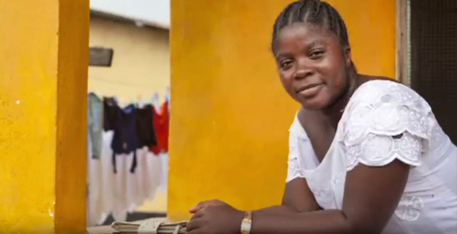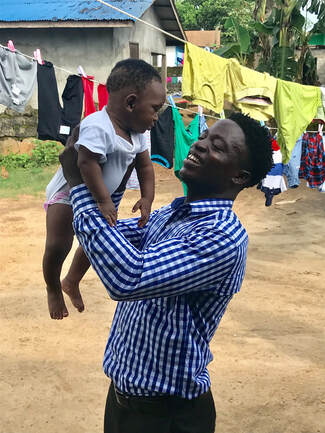We Invest In Women

Around the world, women suffer from economic exclusion – compounded by inadequate health care, educational disparities, cultural discrimination, and gender-based violence. Despite being the center of families and communities, women are too often considered on the periphery of economic growth. The microfinance revolution changed that, and from India to the United States to Liberia, the Foundation for Women (FFW) has been instrumental in bringing the benefits and rewards of microfinance to underserved communities.
The data is indisputable: when women work, they invest 90% of their income back into their families (compared with 35% for men). Further, closing the gender gap in education adds half a percent to a country’s per capita gross national product. For 20 years, the Foundation for Women (FFW) has worked to spur economic growth in emerging markets and to empower women as the economic engines of society and, in so doing, to create a new future for women and girls.
The data is indisputable: when women work, they invest 90% of their income back into their families (compared with 35% for men). Further, closing the gender gap in education adds half a percent to a country’s per capita gross national product. For 20 years, the Foundation for Women (FFW) has worked to spur economic growth in emerging markets and to empower women as the economic engines of society and, in so doing, to create a new future for women and girls.
Our Work In Liberia

After 15 years of extraordinary, life-changing work reaching over 1,000,000 women in the US, Africa and Asia, the Foundation for Women (FFW) scaled back the breadth of the program to focus on depth of impact in one of the most urgent, important places in the world today: Liberia.
After decades of civil war, Liberia has struggled to recover from the destabilizing impact of economic instability, corruption, and social upheaval. FFW first entered Liberia with microfinance programming in 2006 and has grown the program from 100 micro-loans in its first year, to over 50,000 in investments in the past decade. While the Ebola epidemic of 2014-2015 was a devastating set-back for Liberia’s growth, the nation is re-emerging and integrated development strategies are being embraced as the path forward in Liberia to build a strong and resilient private sector.
Today, FFW’s model is four-pronged: microfinance, education, healthcare, and housing. Working with extraordinary and collaborative partners, FFW is embarking on a new phase of growth, Strategic Plan 2022, which will grow the organization’s impact in Liberia to ensure broad-scale economic vitality across the catchment area of over half a million urban Liberians.
After decades of civil war, Liberia has struggled to recover from the destabilizing impact of economic instability, corruption, and social upheaval. FFW first entered Liberia with microfinance programming in 2006 and has grown the program from 100 micro-loans in its first year, to over 50,000 in investments in the past decade. While the Ebola epidemic of 2014-2015 was a devastating set-back for Liberia’s growth, the nation is re-emerging and integrated development strategies are being embraced as the path forward in Liberia to build a strong and resilient private sector.
Today, FFW’s model is four-pronged: microfinance, education, healthcare, and housing. Working with extraordinary and collaborative partners, FFW is embarking on a new phase of growth, Strategic Plan 2022, which will grow the organization’s impact in Liberia to ensure broad-scale economic vitality across the catchment area of over half a million urban Liberians.
